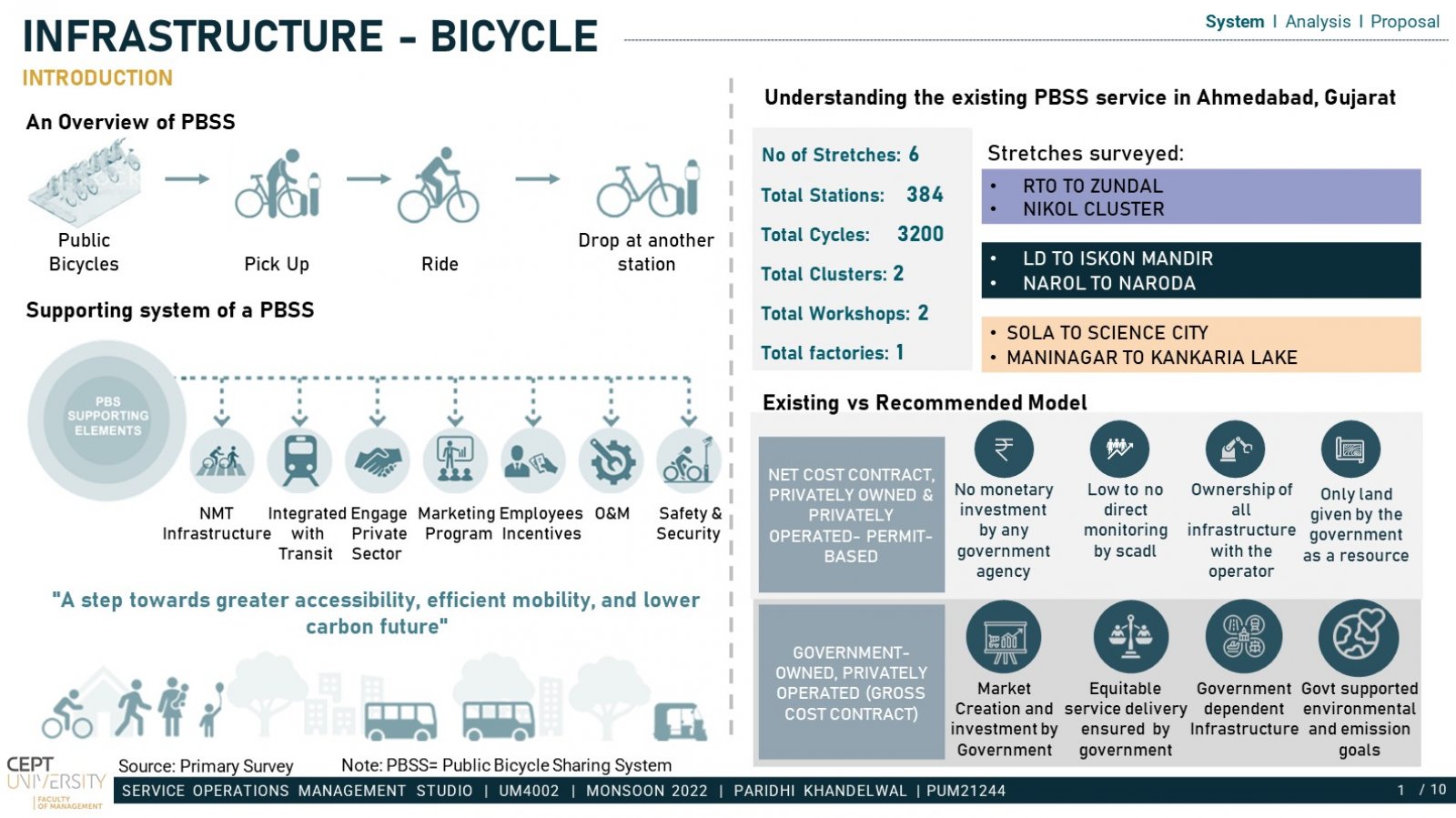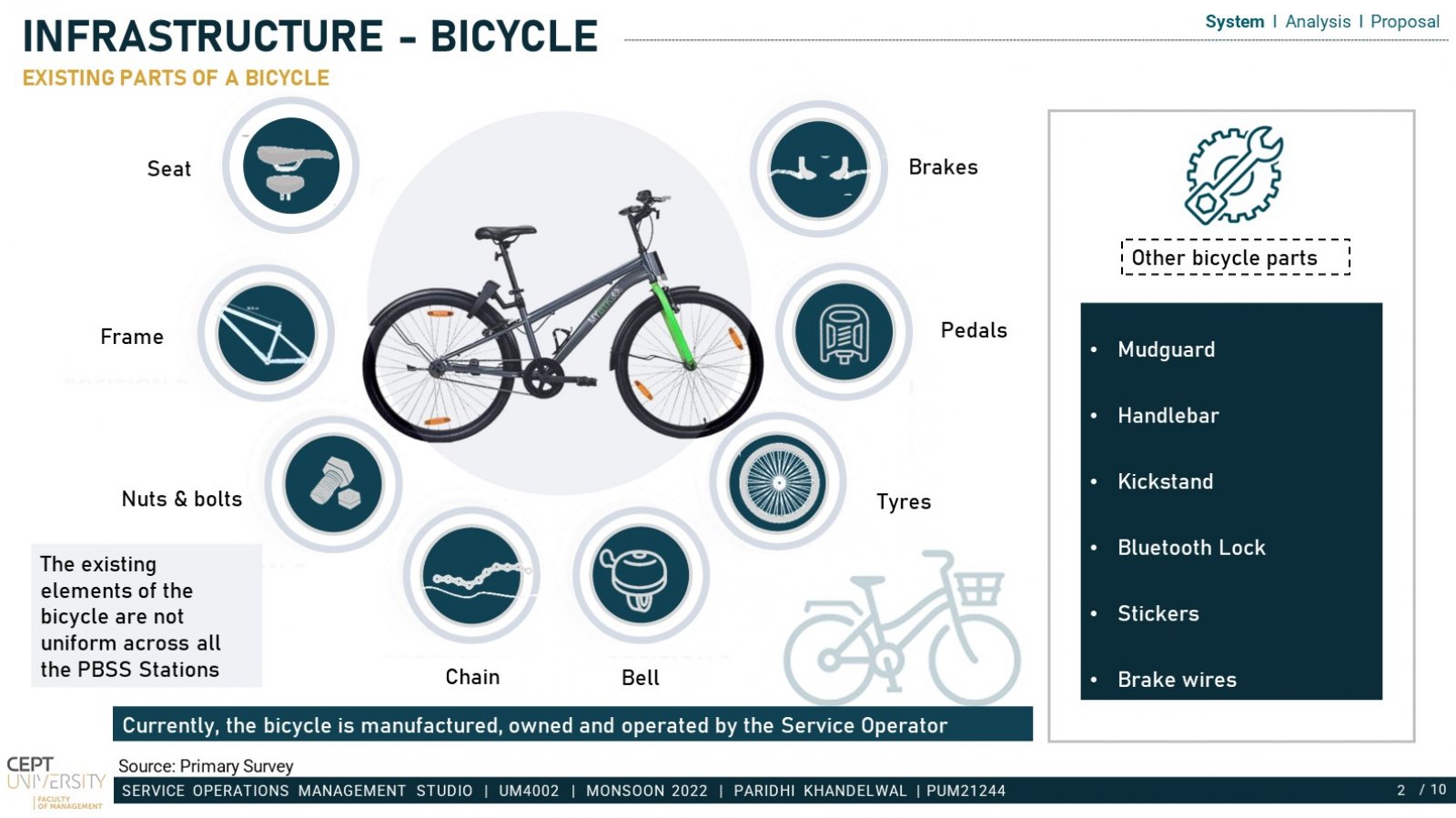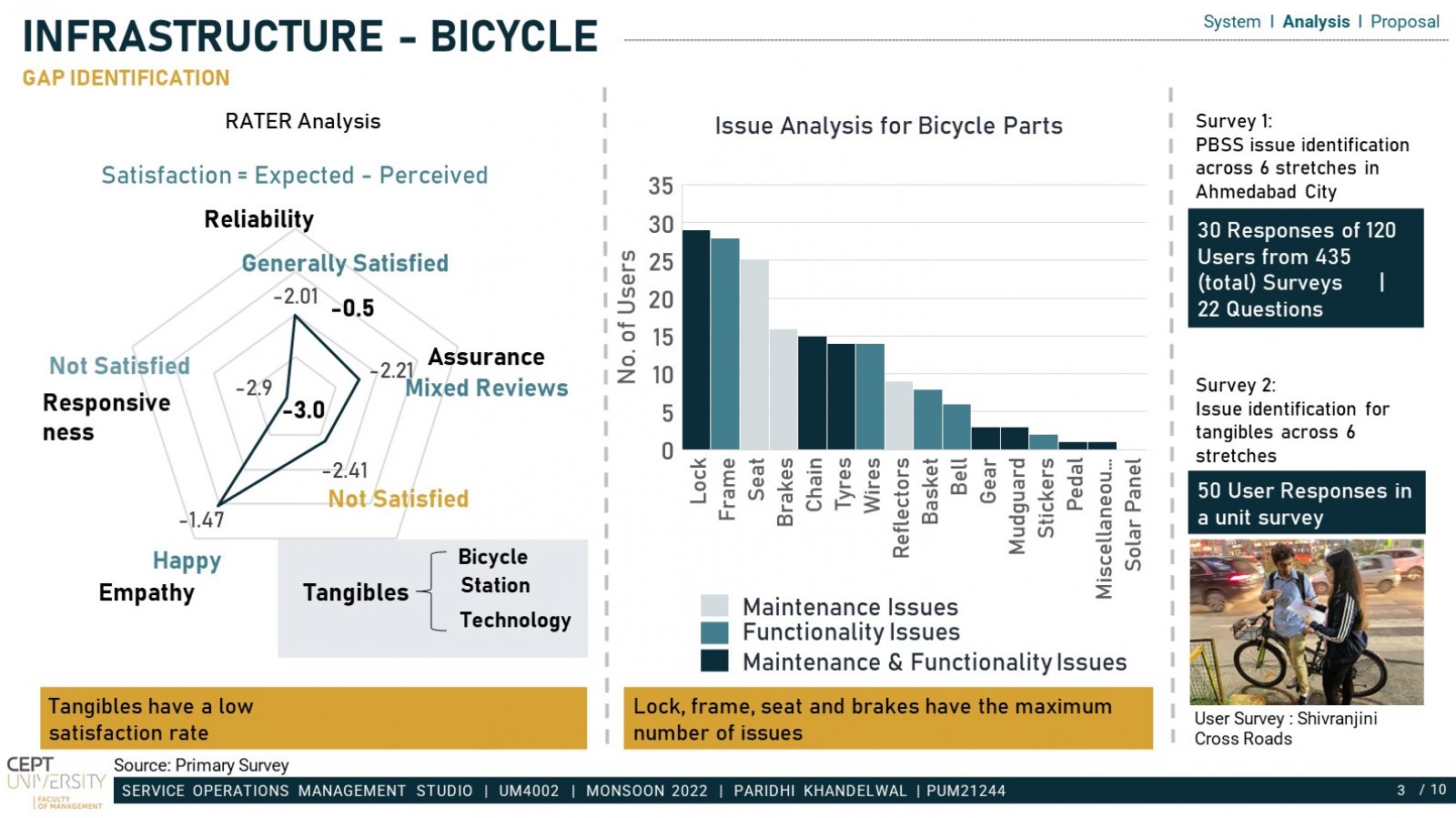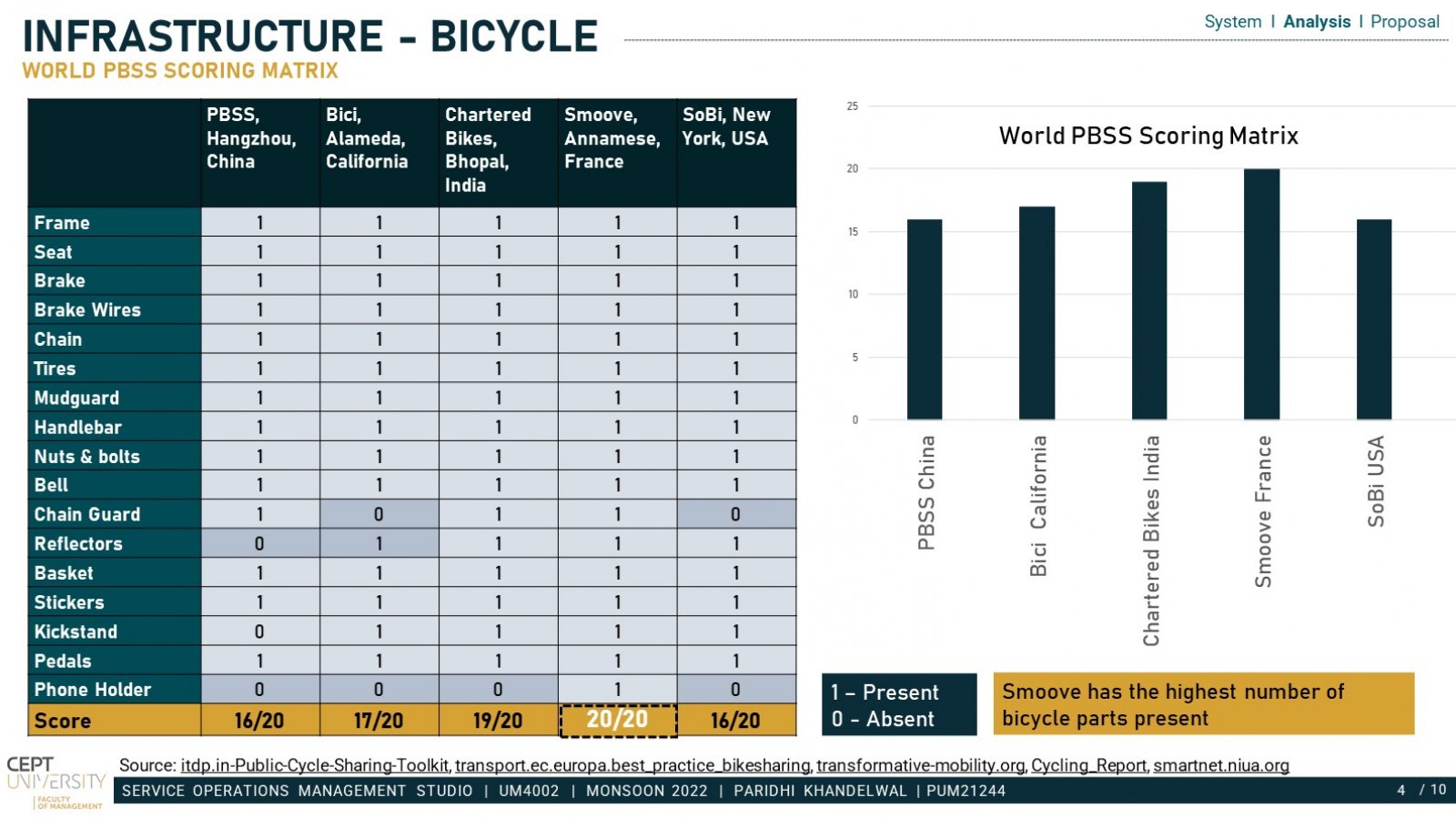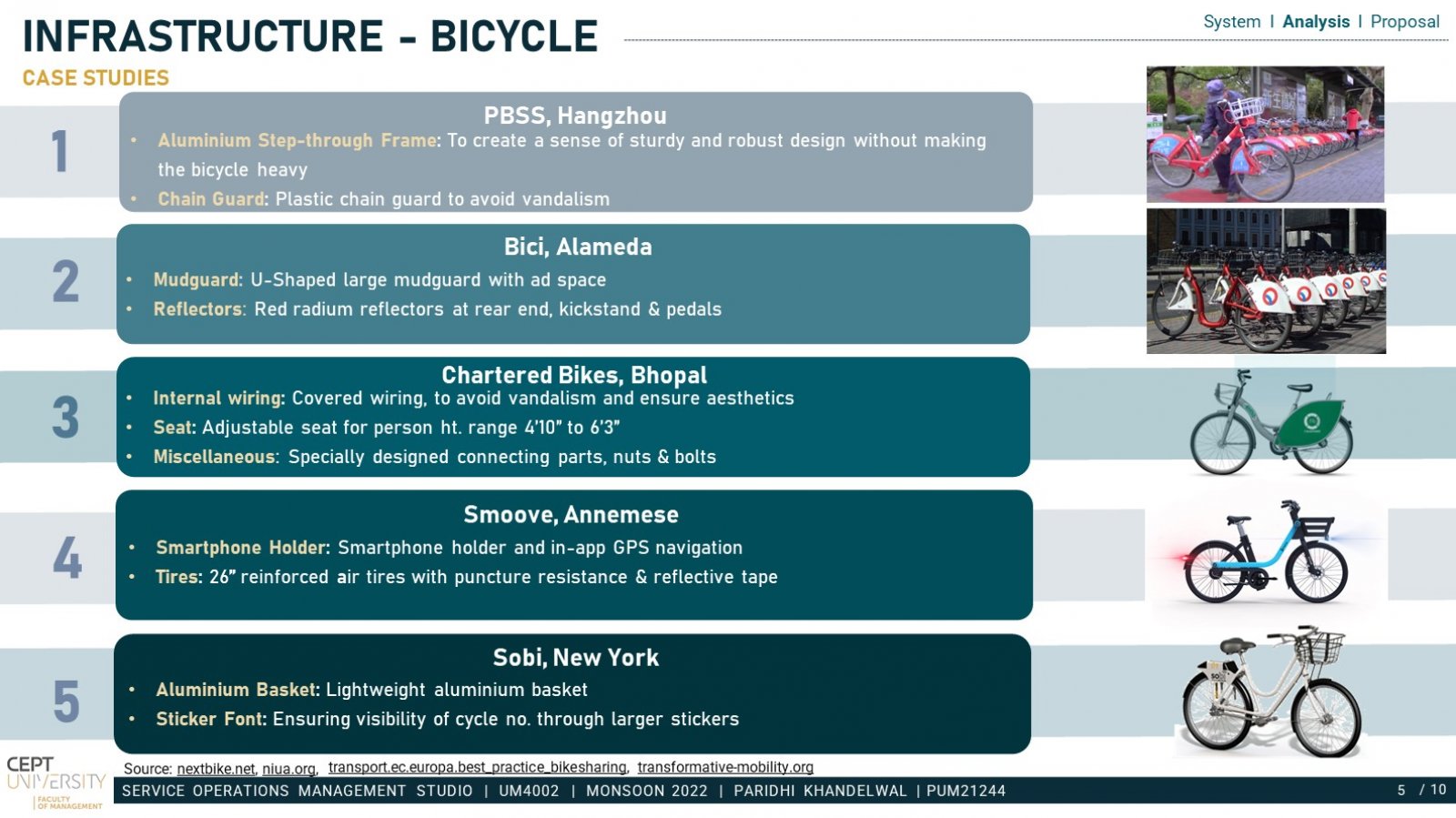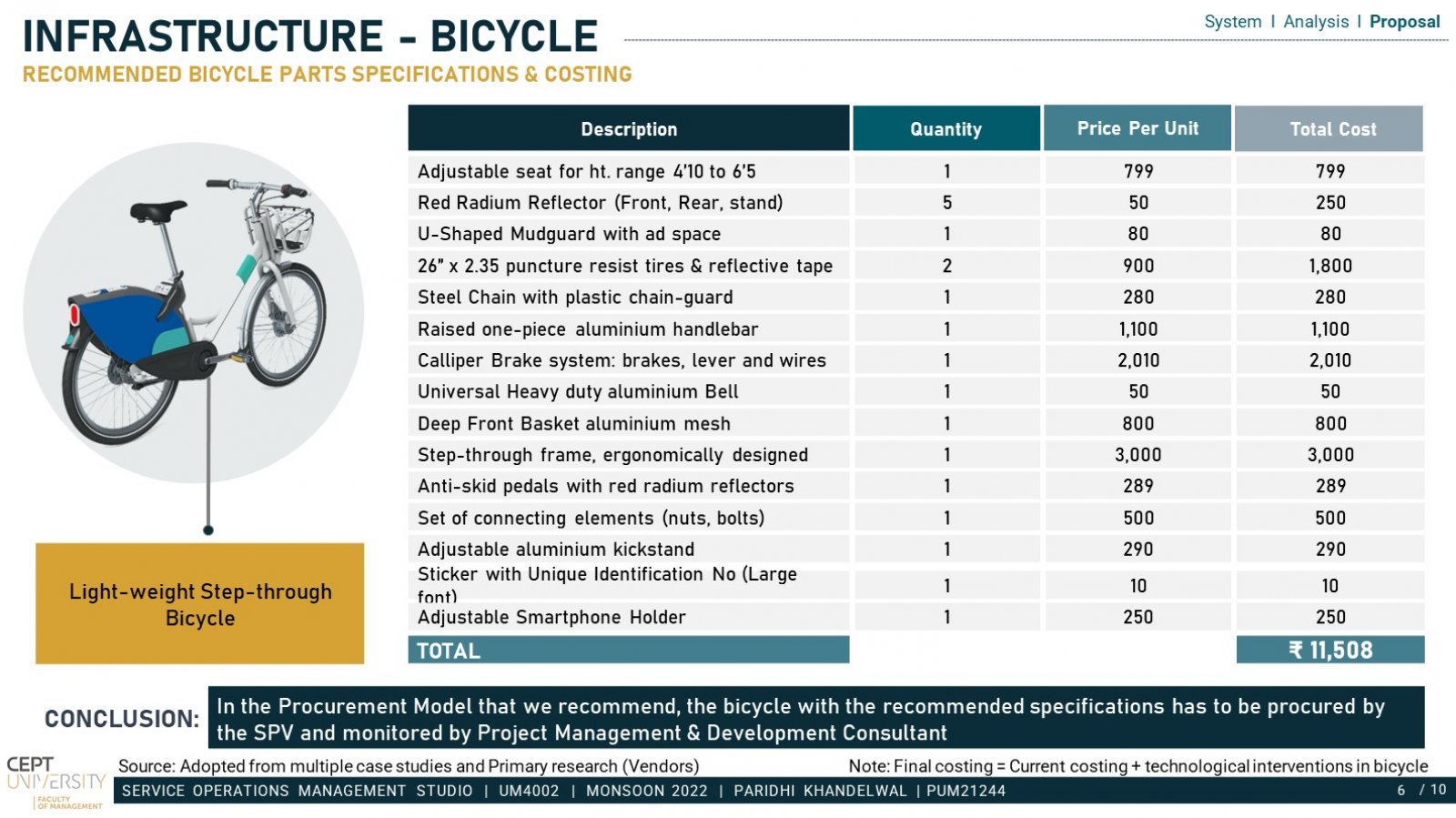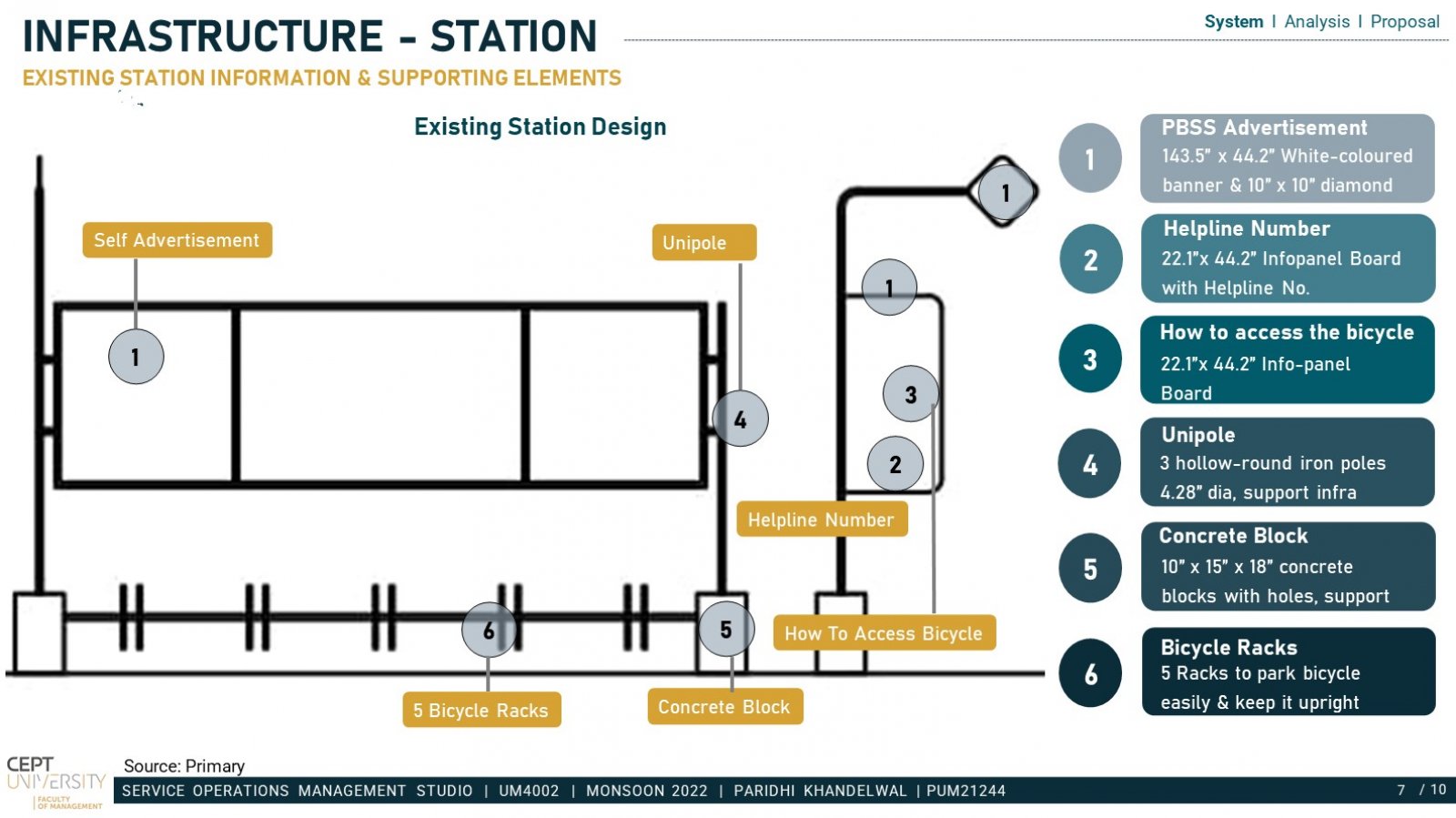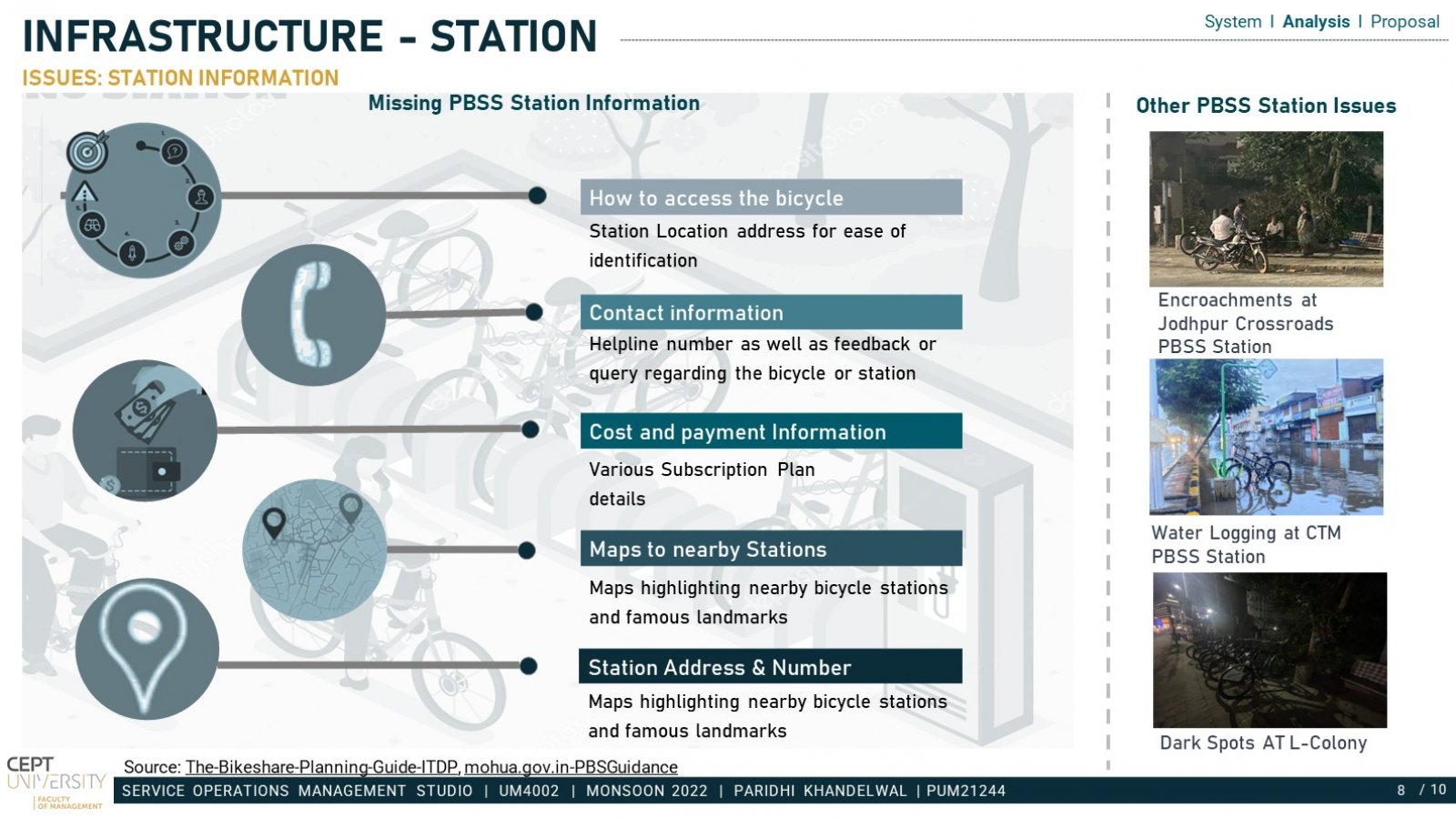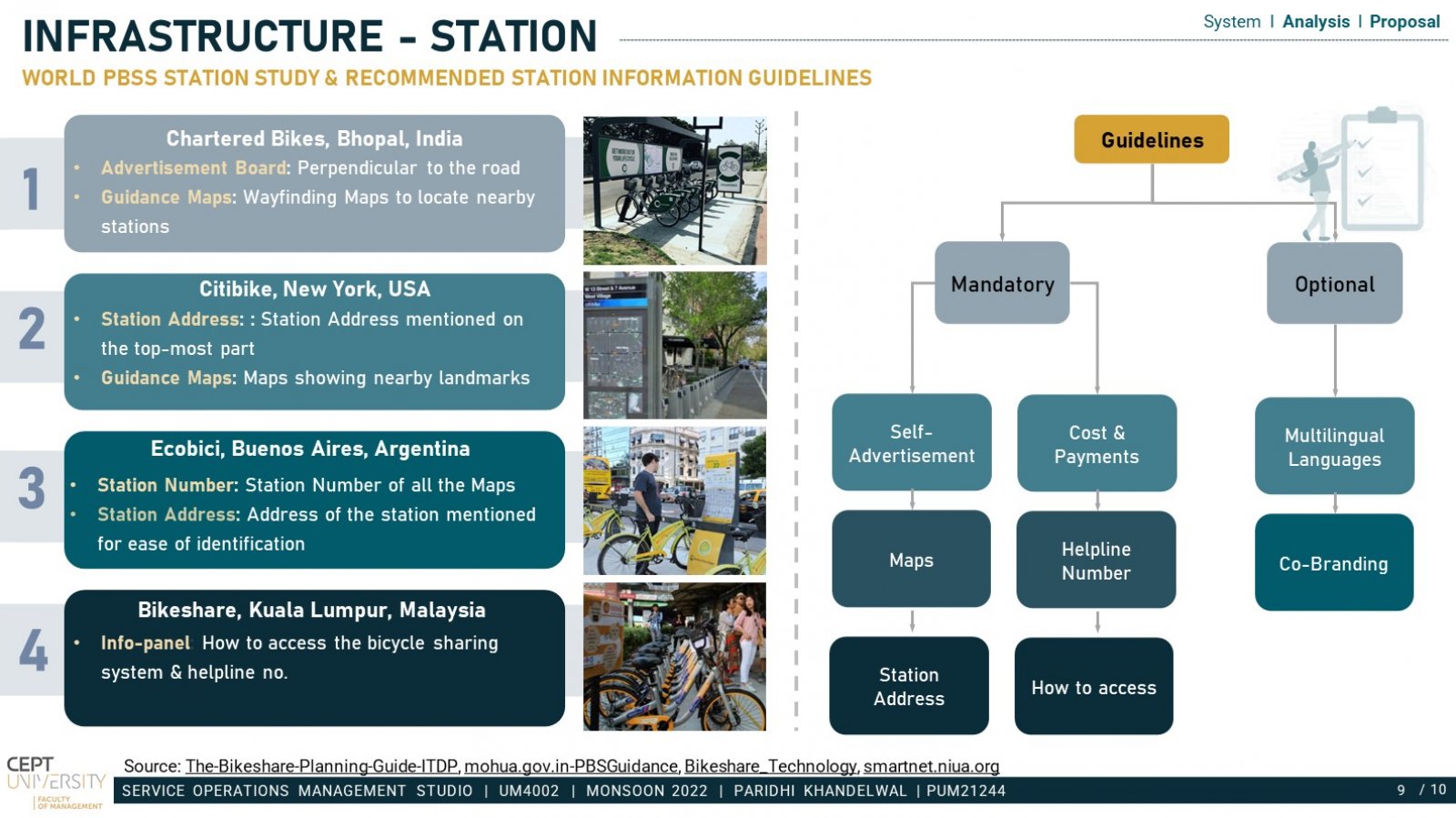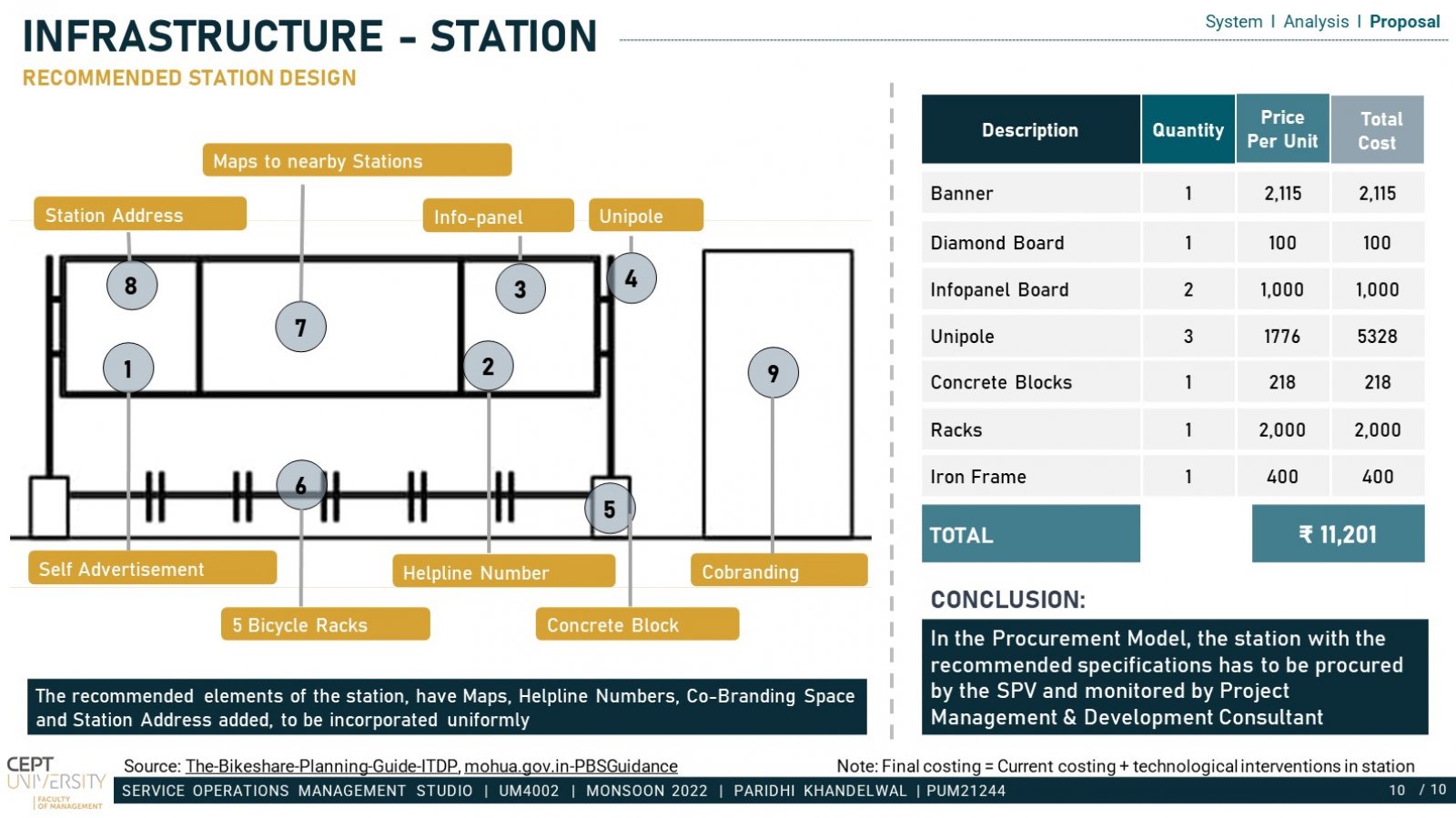Your browser is out-of-date!
For a richer surfing experience on our website, please update your browser. Update my browser now!
For a richer surfing experience on our website, please update your browser. Update my browser now!
Public Bicycle Sharing System (PBSS) is a shared mobility service for the use of the public in a city. It is a network of closely knit bicycles and stations. It is therefore important to understand the necessary specifications of bicycles and stations, that are modular, affordable and serve the users at its best, hence creating a push towards sustainable mobility for the years to come.
